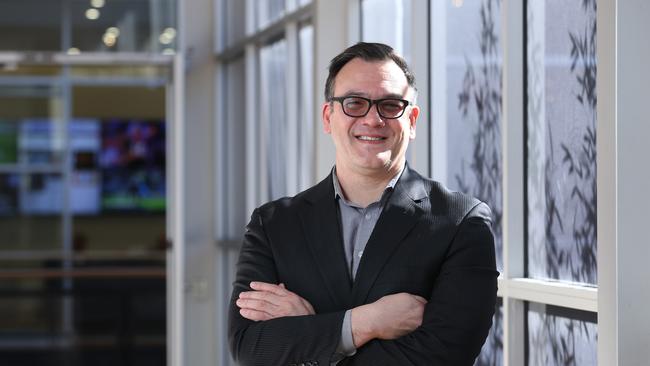Construction sector looking shaky: Cbus
Cbus chief investment officer Kristian Fok has flagged the prospect of long-term damage to the construction sector from an extended lockdown in Victoria.

Cbus chief investment officer Kristian Fok has flagged the prospect of long-term damage to the construction sector from an extended lockdown in Victoria, as he expresses hope that the state government may consider accelerating its road map towards COVID-normal as case numbers decline.
While some of the bigger operators in the industry may survive the crisis, other critical businesses in the sector may not, Mr Fok said, as he warned of unintended consequences from the economic shutdown.
“The construction industry is very cashflow-dependent. And if you keep it locked down for an extended period of time, then what you’re going to find is critical players in the industry may get stressed and, although some of the bigger players will manage through, you will have shortages on the other side. So it’s really critical to think about it as a holistic system,” he told The Australian.
“We’re already seeing a slowdown and a reassessment around residential (property).
“The two aspects are the short term (impact), and then whether there’s some longer-term damage and unintended consequences that are hard to recover. So it could be quite problematic.”
Mr Fok said the industry was currently hanging on to the fact that there were elements of the road map that may allow for some wriggle room to move faster if the data supported it.
Cbus recently warned the construction and building industries were racing towards a cliff in the pipeline of residential work, threatening the employment prospects of hundreds of thousands of workers in the sector.
His comments come as the $54bn construction industry super fund prepares to deploy $850m into Australian corporates in coming months through debt finance.
This is on top of $950m the fund has already committed to Australian businesses through equity raising, debt finance and project financing since the coronavirus crisis hit in March.
Commenting on the capital injection into corporate Australia, Cbus chief executive Justin Arter said the fund was backing projects that would spur employment.
“The value of superannuation as a national capital pool should not be understated. It is the envy of the world for good reason,” he said.
Of the $950m the fund has already committed, $240m has gone to corporate debt, including issuances with Seek, IAG, QBE and Qantas, while a further $260m is funding construction projects in Sydney and Melbourne and $450m has been pumped into capital raisings.
IAG, QBE and Qantas’s most recent issuances have been for longer duration debt, which Mr Fok said suited super funds.
“In the past, some of these corporates had been tapping the overseas markets, but now there’s a role Australian investors like superannuation funds are playing around that long duration debt.
“What we have in this situation is a cashflow crisis that’s been induced by COVID. And so, the capacity for corporate Australia to shore up multiple aspects of the balance sheet is really important and superannuation will play a differentiated role compared to banks.”
The next $850m will also be deployed into the debt market in the coming months, with Mr Fok expecting an influx of companies seeking finance in the near term.
“We’re increasingly seeing more companies wanting to come to the market and look for longer tenor debt financing. So we would imagine that we would see that these funds could be deployed within the next six months subject to the right opportunities and pricing,” he said.
He said the fund had already committed $260m to construction projects.





To join the conversation, please log in. Don't have an account? Register
Join the conversation, you are commenting as Logout